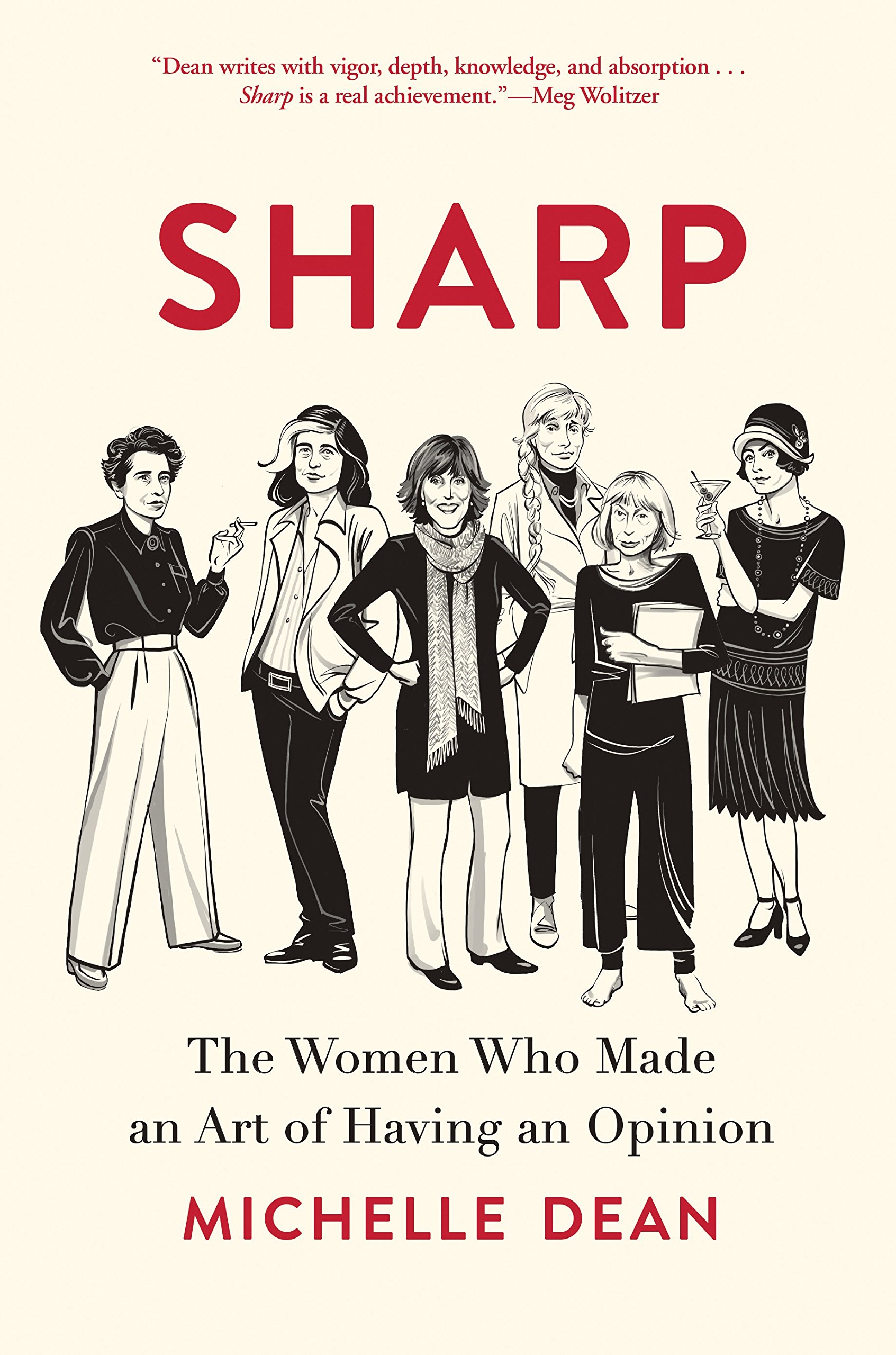
(Photo: Grove Press)
Perhaps we have recently entered a golden age for female essayists; notable books in the past year alone include Durga Chew-Bose’s Too Much and Not the Mood, Roxane Gay’s Hunger, and Chimamanda Ngozi Adichie’s Dear Ijeawele. In Sharp: The Women Who Made an Art of Having an Opinion, released this April, writer and critic Michelle Dean follows the trailblazing female intellectuals of decades past who led the way for many of today’s women writers. Dean tracks the cultural and intellectual history of 20th-century America through the work of female critics and essayists like Joan Didion, Dorothy Parker, Susan Sontag, and Hannah Arendt. For Dean, these women are united by a quality of “sharpness”—a combination of precise insight and biting wit, which more often than not was viewed as threatening by their male peers.
But even as some women appeared to be breaking ground in new mediums throughout the 20th century, they were often discounted as public intellectuals—a central theme in Dean’s book. A 2013 report that examined the male-to-female ratio in newspapers, radio programs, and television talk shows found a four-to-one imbalance within the public intellectual tradition. Interweaving biography and literary criticism to construct a crucial portrait of women rarely grouped together, Sharp provides one answer as to why such a strong gender imbalance persists and makes a persuasive case that we ignore women intellectuals at our peril.
A version of this story originally appeared in the May 2018 issue of Pacific Standard. Subscribe now and get eight issues/year or purchase a single copy of the magazine.





